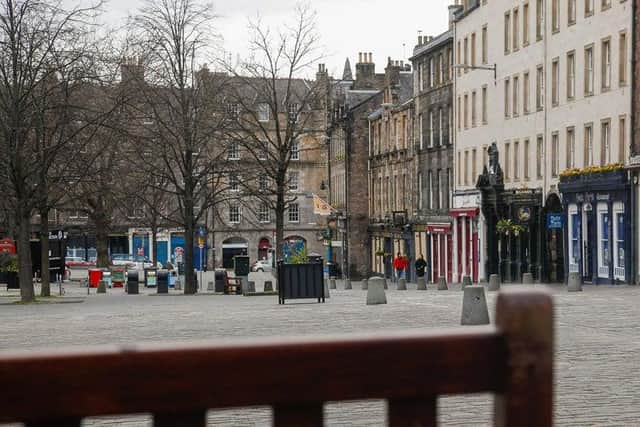The 'minor' Covid changes that could save 30,000 Scottish hospitality jobs
An extension of opening times by a couple of hours and "controlled” alcohol sales could secure the future of almost 2,000 businesses, according to the report by BiGGAR economics.
The industry has been among the worst hit by the restrictions in place across the country, with level three areas barred from alcohols sales in pubs and restaurants, which must close at 6pm.


Advertisement
Hide AdAdvertisement
Hide AdThe report looks at three alternative "scenarios" for operating conditions in hospitality venues to the existing regime. It finds it could result in turnover doubling from £419 million to £1.1 billion.
The number jobs supported could increase by up to 60,800 from the current 28,000, while the viability of 1,816 businesses would also be secured.
Scotland’s main hospitality groups are now calling for the Scottish Government to urgently implement the changes.
Emma McClarkin, chief executive of the Scottish Beer and Pub Association, said: “Public health remains the paramount concern and hospitality businesses have proven they can operate safely with comprehensive Covid-19 measures in place.
"This economic impact study shows that relatively minor changes to opening hours and allowing businesses to serve alcohol responsibly, would transform the commercial viability of the sector."
The study was commissioned by drinks giant Diageo on behalf of the hospitality sector.
It spells out the economic of the existing restrictions on the hospitality sector, with expected annual turnover shrinking across the sector from £2bn in pre-Covid to just £276m under the restrictions that were in place in November. The number of jobs supported collapsed from 83,400 to 19,100.
Colin Wilkinson, managing director of the Scottish Licensed Trade Association, also appealed for restrictions to be eased.
Advertisement
Hide AdAdvertisement
Hide AdHe said: “This would create a more sustainable environment for hospitality businesses beyond Christmas and ensure more of them survive the winter, continue to create jobs and play the positive role as part of the fabric of communities the length and breadth of Scotland.”
The first alternative policy scenario in the report looked at extending closing times from 8pm to 10:30pm and allowing alcohol to be served with food in levels one to three. This scenario supports £927m in turnover and 53,100 jobs. However, it represents a fiscal cost of £14m.
The second alternative looked at also allowing drinks-based pubs and bars that don’t serve food to be open until 8pm in levels one to three. This supports £1.1bn in turnover, 60,800 jobs and a fiscal benefit of £63m.
The third alternative policy scenario looked at allowing all hospitality businesses to be open until 10:30pm and to serve alcohol. This supports £1.2bn in turnover 65,400 jobs, and a fiscal benefit of £105m.
Wille MacLeod, director of UKHospitality Scotland, said: “The restrictions, as currently in place, have a disproportionate impact on the hospitality sector and is costing the Scottish economy millions of pounds.
"A relaxation, as has been suggested by the industry would give our sector a transformative boost and help support business in the crucial recover period.”
A message from the Editor:Thank you for reading this article. We're more reliant on your support than ever as the shift in consumer habits brought about by Coronavirus impacts our advertisers.
If you haven't already, please consider supporting our trusted, fact-checked journalism by taking out a digital subscription.
Comments
Want to join the conversation? Please or to comment on this article.
